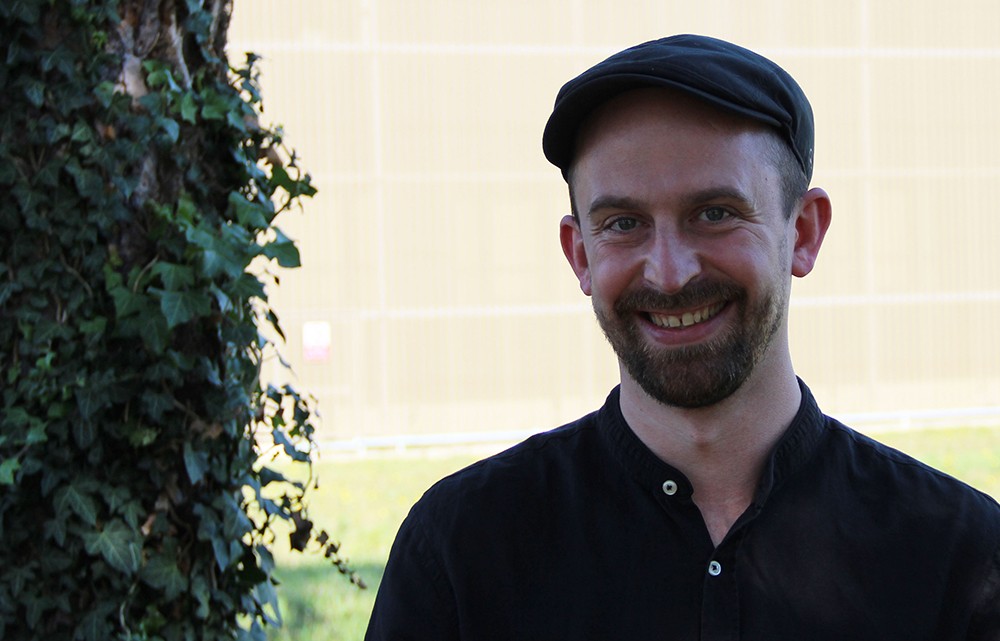In the field of Liberal Arts and Sicences, EPICUR is developing a wide variety of state-of-the-art teaching and learning formats with an emphasis on collaborative teaching and learning. Johann Chalmel from UHA, present his course for the Fall semester 2021, entitled Accompanying Anthropocene-related transitions (societal, climatic, environmental, digital…): intercultural approaches

Can you present yourself please and your role in EPICUR?
My name is Johann Chalmel and I am a junior professor in intercultural pedagogy in the Chair of Interculturalities at UHA and I also work with NovaTris, the Centre for cross-border skills of UHA (ANR-11-IDFI-0005). I am very interested in current issues related to the deregulation of our planet (climatic, ecological, social, economic etc.). I think that the good management of intercultural competence and the good handling of intercultural contexts can allow us to better deal with this unprecedented situation by collaborating in meaningful projects.
I am also one of the activity leaders of the task 5.4 Facilitating bridging the regions through intercultural skills. In this framework, we are conducting an action-research to understand how interculturality is perceived in EPICUR in order to develop a training of trainers that will allow actors of the 8 universities to propose intercultural accompaniment in their universities.
Which course do you propose in the EPICUR program?
The course Is named Accompanying Anthropocene-related transitions (societal, climatic, environmental, digital…): intercultural approaches.
The Anthropocene refers to a new geological period characterized by the impact of human activities on the Earth system as a whole. This course offers a reflection on this emerging concept and its links with recent effects such as climate change, health crises, etc. The notion of Anthropocene questions our societies on the foundation of our civilizations and how we deal with ourselves, with others and with what connects us.
The current goals of reducing human impacts on greenhouse gas emissions, biodiversity loss and state strategies to tackle the COVID19 pandemic cannot be achieved solely through national political decisions. Many scientists are now arguing for solutions actively involving affected populations. In such a setting, a good understanding of intercultural dynamics and of our power to act on them, seems crucial in order to tackle the challenges currently faced by our societies.
In this course, Students will be asked to choose a topic of their choice and to propose a concrete project of intercultural accompaniment related to the necessary transitions in the Anthropocene era. They will learn methods to use intercultural contexts to create positive dynamics of cooperation in the face of tomorrow’s challenges.
What is your advice for the students who wants to apply for the EPICUR courses?
Take your time and choose a university programme that really meets your expectations, that you are passionate about and that will allow you to achieve your future projects.
When does the EPICUR courses start? What is the procedure of the application and what are the conditions to get in?
This online course starts in January 2022. Students have to be able to exchange in English and to be motivated to work in group in order to build solid projects. The application can be made on the dedicated EPICUR plateform (and through the UE libre choice for UHA students)
What is the added value that an EPICUR course can provide to the students?
In this course students will have the opportunity to work on projects with people from different cultures (different way to work, different disciplines, different generations, different nationalities etc.). This diversity is rich and helpful to prepare for entry into professional life because collaborations are the key to success in the 21st century
A last word for the future EPICUR students?
“Imagine if all the productive and creative energy of the people who work every day on the planet were not concentrated on keeping the economic machine running, but on activities that make them want to jump out of bed every morning, and if this energy were put to use in projects with a strong ecological and social purpose… It’s a safe bet that the world would quickly change.” (translated from C. Dion, A little Handbook of Contemporary Resistance – Petit manuel de résistance contemporaine, 2018)
